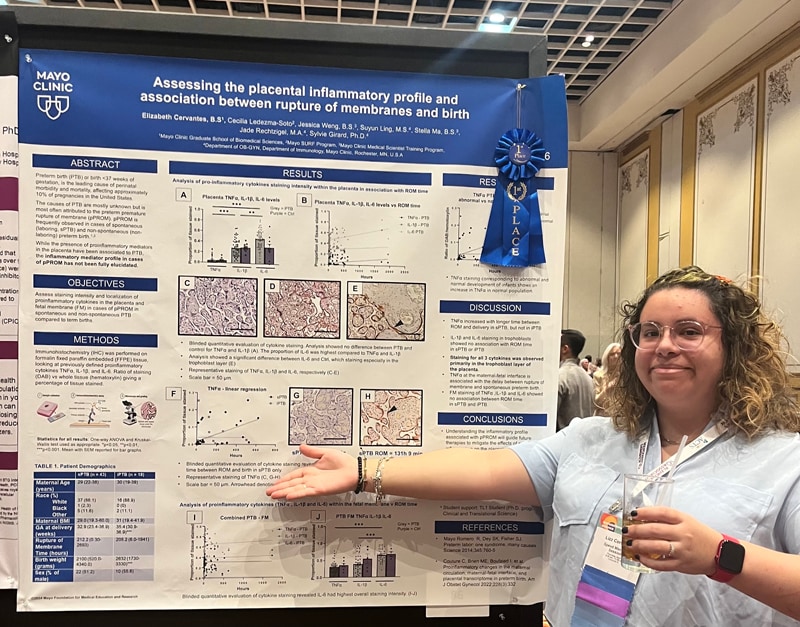Meet the Student:
Lizz Cervantes
Hometown:
Rosenberg, Texas
Graduate Track:
Clinical and Translational Science
Mayo Clinic in Minnesota
/prod01/channel_2/media/mccms/content-assets/academics/biomedical-research-training/phd-program/student-life/student-spotlights/mccms-lizz-cerventes-512x-WF1287093_0025.jpg)
Meet the Student:
Hometown:
Rosenberg, Texas
Graduate Track:
Clinical and Translational Science
Mayo Clinic in Minnesota
My journey into biomedical research was shaped by personal experiences and a drive to make a difference. When my mom was diagnosed with leukemia during my junior year of high school, I saw how new treatments offer hope to patients. That experience inspired me to pursue a career where I could contribute to medical advancements. In the lab, I wanted to focus on research that can directly benefit patients. This realization led me to apply to the Clinical and Translational Science program at Mayo Clinic Graduate School of Biomedical Sciences, where I could bridge the gap between bench research and bedside care.
What stands out most about my graduate school experience is the supportive community at Mayo. My mentor, Sylvie Girard, Ph.D., provides invaluable guidance, balancing constructive feedback with encouragement, and helping me grow as a scientist and develop professional confidence. My lab family and the wider Mayo community are equally inspiring, fostering collaboration and mutual support.
As a proud Latina and advocate for diversity in STEM, I’m committed to increasing representation in the sciences. I’ve embraced opportunities to mentor and support fellow underrepresented students My autism diagnosis has also deepened my understanding of the barriers that confront neurodivergent individuals, motivating me to champion inclusivity in science and education. To anyone pursuing their dreams: "¡Échale ganas! ¡Ponte las pilas! You miss 100% of the shots you don’t take. Believe in yourself and take it one step at a time. You’ll be amazed at how far you can go."

My Ph.D. research focuses on investigating biomarkers of inflammation that may help identify infants at high risk of neurodevelopmental disorders. This research is deeply personal to me because of my own diagnosis of autism spectrum disorder at age 22, following years of misdiagnosis and ineffective treatments.
That journey brought mixed emotions: relief at understanding myself better but also anger at how long it took to get a proper diagnosis—a reality that many women and girls with autism face, with 80% remaining undiagnosed by age 18. Finding biomarkers and a process for early identification of autism would allow for timely interventions, which can have a profoundly positive impact on children and their families.